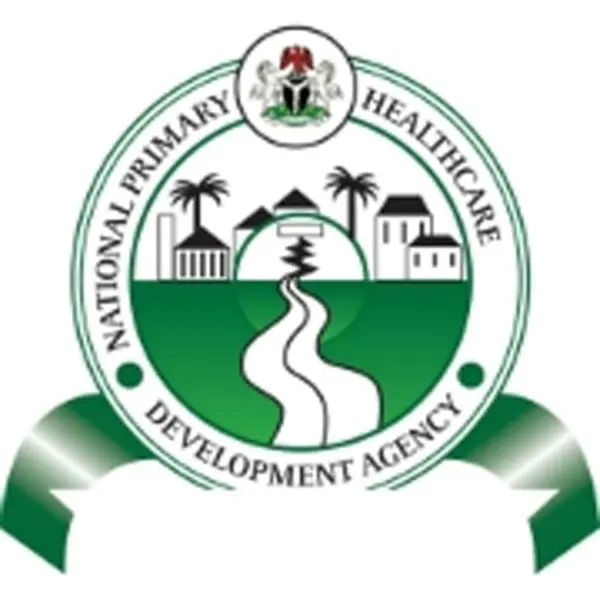
The National Primary Health Care Development Agency (NPHCDA) has unveiled crucial findings from an evaluation of Nigeria’s Adverse Events Following Immunisation (AEFI) surveillance project, in a significant move to bolster vaccine safety monitoring systems nationwide.
The findings were presented at a dissemination meeting held on Wednesday in Abuja, with the spotlight on the COVID-19 vaccine safety surveillance framework and the DHIS-2 AEFI tracker system introduced during the pandemic. The goal of the evaluation was to assess the performance of these systems and identify gaps in AEFI reporting that could undermine public trust and future vaccine rollouts.
The evaluation was implemented by the Institute of Human Virology Nigeria (IHVN), as part of a sub-project titled COVID-19 AEFI Surveillance Activities and Evaluation of DHIS-2 for COVID-19 AEFI Reporting. The project covered five states, namely Lagos, Oyo, Kano and Rivers, with the Federal Capital Territory (FCT) serving as a representative sample of Nigeria’s health system landscape.
Speaking during the meeting, the deputy director and head of surveillance at NPHCDA, Abdullazeez Yahaya noted that the evaluation revealed several systemic challenges, especially at the sub-national level. These include underreporting of AEFI incidents by frontline health workers, primarily due to fear of punishment or blame.
“This evaluation highlights persistent challenges in AEFI reporting,” Yahaya said. “Frontline health workers often fear reprisals, which discourages them from documenting and reporting adverse events. But no one should be penalised for reporting AEFI – it’s a vital component of ensuring vaccine safety.”
Yahaya explained that low reporting rates, especially at the local government level, stemmed from inadequate training and misconceptions among healthcare workers about the consequences of reporting. The study also pointed to infrastructural deficits, weak political commitment and lack of harmonised reporting systems at the state and local levels as major obstacles.
Pharm. Victoria Etuk, representing IHVN’s International Research Centre of Excellence and serving as the project’s surveillance lead, reiterated the importance of disseminating the findings to guide future immunisation strategies.
“We are here to share the results from the Strengthening Surveillance for COVID-19 Adverse Events project, which was led by Prof. Alash’le Abimiku,” she said. “This data should inform government decisions and shape vaccine safety priorities, especially with the introduction of new vaccines.”
Etuk said that more than 500 healthcare workers, comprising immunisation and surveillance officers, were trained during the project. She noted that many of them initially expressed hesitation to report AEFI incidents due to fear of negative repercussions, but the training helped shift perceptions.
“We trained and reassured them that reporting is not punitive. It is a professional responsibility and critical to protecting public trust in vaccines,” she said.
She stressed the need for a “data for action” approach, urging stakeholders to use the insights gathered during the project to enhance preparedness for future vaccine introductions. Etuk also highlighted the importance of harmonising AEFI reporting systems in line with World Health Organisation (WHO) recommendations to create a unified national platform for vaccine safety surveillance.
The dissemination event reinforced NPHCDA’s regulatory mandate in ensuring vaccine safety through rigorous quality assurance and post-marketing surveillance processes.
Speaking on this, the director of pharmacovigilance at the National Agency for Food and Drug Administration and Control (NAFDAC), Dr. Uchenna Elemuwa said that while COVID-19 vaccines were granted emergency use authorisation during the pandemic, they underwent stringent quality testing before rollout in Nigeria.
“Although these vaccines were not initially trialled on Nigerian populations, NAFDAC ensured their quality through rigorous laboratory analysis,” she explained. “However, vaccine reactions are often individual-specific, which is why continuous safety surveillance is indispensable.”
Elemuwa highlighted that NAFDAC, in collaboration with IHVN, the U.S. Centres for Disease Control and Prevention (CDC) and other partners, activated the National Pharmacovigilance Centre to monitor vaccine safety through cohort event monitoring. This approach has enabled real-time detection and evaluation of side effects within the Nigerian context.
She noted that vaccine-related adverse events could result from several factors, including co-morbidities, drug interactions and individual immune responses. She called for more investment in training, timely reporting, and standardisation of data to improve national pharmacovigilance outcomes.
“The safety profile of these vaccines is clearer today because of this collaborative monitoring effort,” she added. “But underreporting remains a significant barrier. For regulatory decisions to be evidence-based, we need accurate and comprehensive data from all parts of the country.”
Elemuwa also advocated for the broader adoption of tools like the DHIS-2 AEFI tracker, saying such digital platforms would empower NAFDAC to respond swiftly to safety concerns and boost public confidence in the national immunisation programme.
The disease surveillance and notification officer for the FCT, Dr. Fatima Ahmed welcomed the findings and expressed hope that they would drive concrete improvements in vaccine safety infrastructure.
“These insights should boost healthcare worker confidence and ensure that Nigeria’s immunisation campaigns remain effective and trusted,” she said. Ahmed confirmed that the FCT is already using the DHIS-2 reporting system effectively and treating anyone experiencing adverse effects free of charge under a Federal Government initiative.
“We need to intensify public advocacy to raise awareness about these safety measures,” she added.
Project director for the Secure-Nigeria Project at IHVN, Dr. Rita Okonkwo emphasised that robust AEFI monitoring systems are not only essential for responding to adverse events but are also key to maintaining public trust, especially during public health emergencies like COVID-19.
She stated that discussions during the meeting explored strategies for institutionalising the DHIS-2 AEFI tracker across the national immunisation programme, enabling better data utilisation for decision-making and policy development.
“With growing global concerns about vaccine safety, this project underscores Nigeria’s commitment to transparency, preparedness and long-term immunisation success,” Okonkwo said.
Participants at the meeting are expected to develop scalable strategies for integrating the DHIS-2 tracker into routine systems and ensuring continuous training of frontline workers to enhance data accuracy and reporting compliance.

